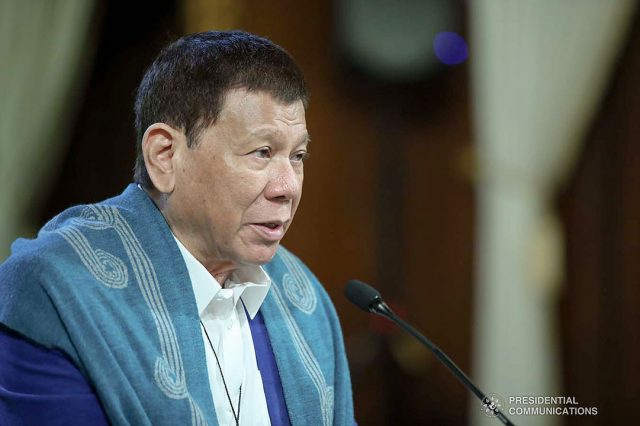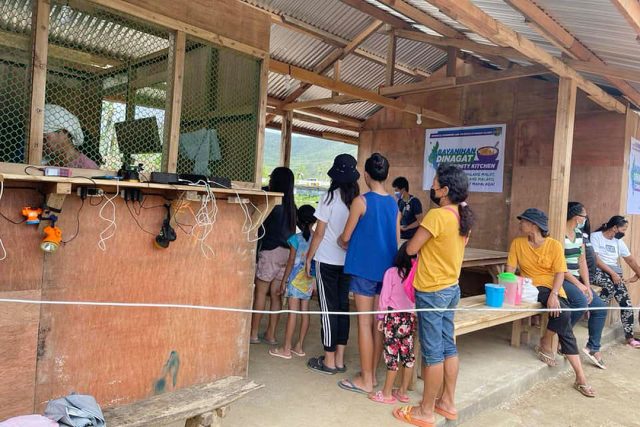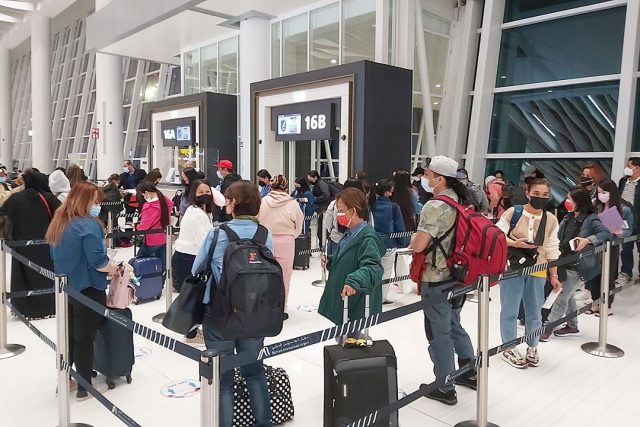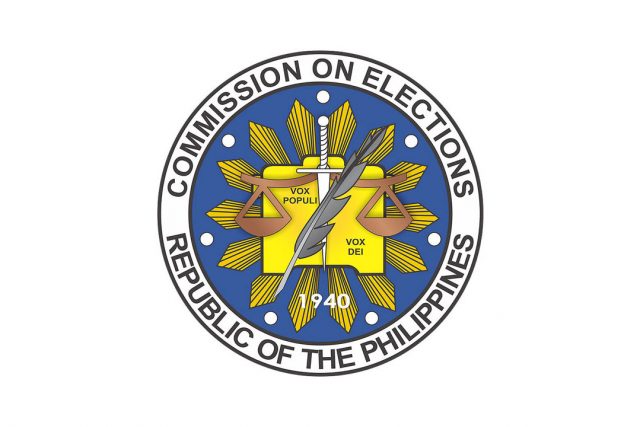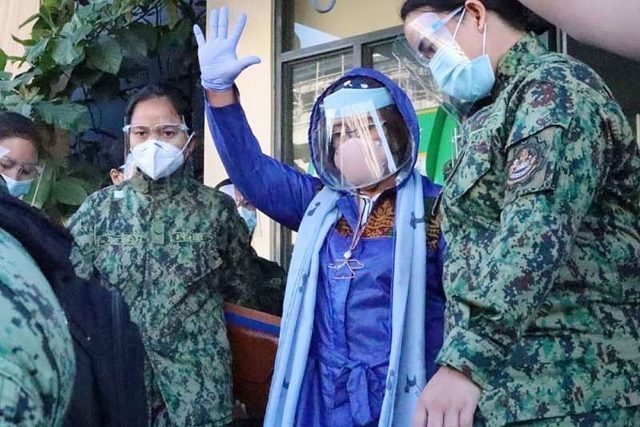Duterte under quarantine after COVID exposure
By Kyle Aristophere T. Atienza, Reporter
PHILIPPINE President Rodrigo R. Duterte, 76, is under quarantine after he was exposed to household staff who tested positive for the coronavirus, his spokesman said on Thursday.
“The President has since been tested for COVID-19, and while the results of the test came back negative, he is currently observing mandatory quarantine protocols,” presidential spokesman Karlo Alexei B. Nograles said in a statement.
Mr. Duterte was exposed to someone with the virus on Jan. 30 and his negative RT-PCR test result came out on Monday, he said. The President took another RT-PCR test and tested negative on Feb. 1.
Meanwhile, Mr. Nograles said Mr. Duterte visited Cardinal Santos Medical Center in San Juan “for his routine medical check-up only.”
He said the president continues to work while in quarantine and was communicating with Cabinet members “to ensure that urgent matters are addressed and to monitor the implementation of his directives, particularly with regard to the government’s pandemic response.”
Mr. Duterte has been fully vaccinated against the coronavirus. He also got a booster shot early this month, Mr. Nograles said.
Seniors and seriously ill people are at risk of having severe coronavirus disease 2019 (COVID-19).
Mr. Duterte said in 2020 that his Barrett’s esophagus — a condition where the gullet is damaged by acid reflux — was nearing stage one cancer.
In 2019, Mr. Duterte said he was suffering from myasthenia gravis, an autoimmune disease that could cause serious complications.
Meanwhile, pandemic officials on Thursday moved the vaccination of children aged 5 to 11 years against the coronavirus to Feb. 7 due to logistical issues.
In a joint statement, the Health department and National Task Force Against COVID-19 said delivery of the first batch of vaccines from Pfizer, Inc. got delayed by a day to Feb. 4, when the inoculation was supposed to start.
The agencies said they were “committed to ensure that all Filipinos, including the children, get vaccinated.”
The Finance department said loans for coronavirus vaccines were enough to buy 30 million doses for children under 12 years.
The Philippines in December borrowed $800 million from three multilateral lenders to fund COVID-19 booster shots and shots for minors.
“This additional loan amount would augment the current funding for pediatric vaccines and would enable the delivery of 30 million doses of Pfizer doses for the 5-11 age group,” the agency said in a statement.
The Philippines had fully vaccinated 59.34 million people as of Feb. 2, while 60.52 million have received their first dose, data from the Health department showed. Almost 7.7 million booster shots have been given out.
The Southeast Asian nation is scrambling to vaccinate more people as it reopens the economy after a fresh surge in infections spurred by the highly mutated Omicron variant.
The Department of Health (DoH) posted 8,702 coronavirus infections on Thursday, bringing the total to 3.59 million.
The death toll hit 54,168 after 71 more patients died, while recoveries rose by 15,290 to 3.38 million, it said in a bulletin.
The agency said 25.5% of 42,446 samples on Feb. 1 tested positive for COVID-19, still above the 5% threshold set by the World Health Organization (WHO).
Of the 153,335 active cases, 4,923 did not show symptoms, 143,493 were mild, 3,067 were moderate, 1,528 were severe and 324 were critical.
DoH said 97% of the latest cases occurred from Jan. 21 to Feb. 3. The top regions with new cases in the past two weeks were Western Visayas with 1,039, Central Visayas with 799 and the Davao region with 785. It added that 93% of new deaths occurred in January.
It said 539 duplicates had been removed from the tally, 207 of which were recoveries, while 29 recoveries were relisted as deaths. Five laboratories failed to submit data on Feb. 1.
The agency said 44% of intensive care unit beds in the country had been used, while the rate for Metro Manila was 37%.
Coronavirus infections in seven urban cities outside Metro Manila were decreasing, according to the OCTA Research Group from the University of the Philippines.
OCTA fellow Fredegusto P. David tweeted that infections in the cities of Angeles, Baguio, Dagupan, Lucena, Naga, Olongapo and Santiago have gone down.
Various countries have started easing lockdowns amid hopes that the Omicron variant, which was first detected in South Africa, might have peaked.
The World Health Organization has said some countries that have high immunity rates, strong health care systems and favorable epidemiological trends could now consider carefully easing restrictions, according to a report by the Los Angeles Times.
Denmark was among the first European Union members that took the lead in scrapping most pandemic restrictions.
The Scandinavian country recently scrapped mask mandates and health passes, according to the Economic Times.
Vivencio B. Dizon, deputy chief implementer of the Philippine’s pandemic plan, on Wednesday said the government was crafting a plan to exit from the pandemic and move to an endemic phase.
The presidential palace has said it was not yet time to scrap the virus alert system in the country, citing low vaccination rates in some areas.
Palace spokesman Karlo Alexei B. Nograles said people should focus on the shift to Alert Level 1. — with Jenina P. Ibañez

